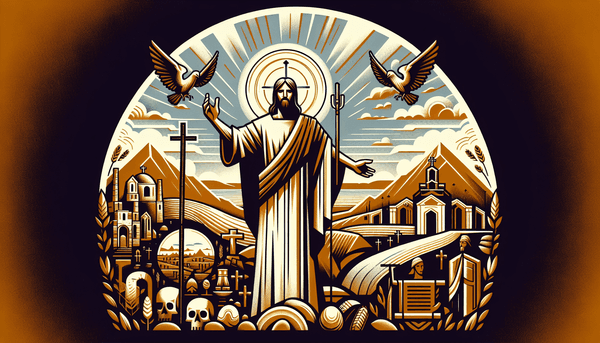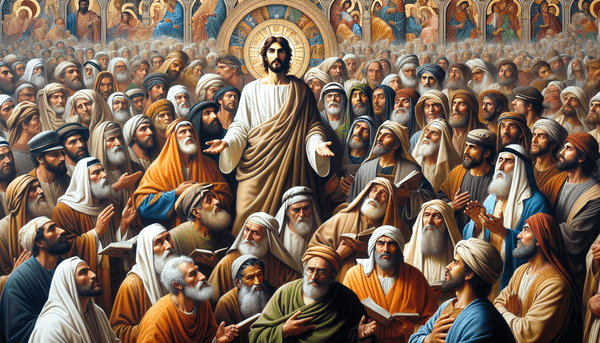The Significance of the Resurrection of Jesus
The resurrection of Jesus is a beacon of hope, symbolizing the ultimate triumph over death and the power of sin. In the wake of His resurrection, believers are offered a glimpse into the promise of their own resurrection, as expressed in 1 Corinthians 15:55-57, where death's sting is overcome by victory in Christ. This miraculous event is not just a testament to Jesus' divine authority, as affirmed in Romans 1:4, but also a profound assurance of the eternal life promised to those who follow Him, articulated in John 14:19. The resurrection narrative reaches its crescendo in the hope of redemption, a theme poignantly captured in 1 Peter 1:3, where believers are born again to a living hope through the resurrection of Jesus Christ from the dead.
The Role of a Centurion in the Roman Army and Biblical Context
The centurion, a professional officer in the Roman army, plays a notable role in the biblical narrative. This figure is often highlighted for his interactions with Jesus, especially in the account of the centurion who demonstrated remarkable faith, as seen in Matthew 8:5-10. His acknowledgment of Jesus' authority, even as a Gentile, emphasizes the inclusivity of Christ's message and the power of faith that transcends cultural and religious boundaries. This incident is a powerful reminder of Jesus' mission to bring salvation to all, as envisaged in the prophecies of the Old Testament and reiterated in Jesus' assertion that many will come from east and west to take their places at the feast with Abraham, Isaac, and Jacob in the kingdom of heaven (Matthew 8:11-12).
The Wisdom of Jesus as Portrayed in the Bible
Jesus' wisdom was a source of amazement among those who witnessed His teachings firsthand. In His hometown, the incredulity of the locals is palpable as they ask, 'Where did this man get this wisdom and these miraculous powers?' (Matthew 13:54), revealing their astonishment at His profound understanding and abilities. This wisdom, as noted in Luke 2:52, was not static; Jesus grew in wisdom and stature, gaining favor with both God and man. His authority as a teacher was unquestioned, leaving even the guards sent to arrest Him to declare, 'No one ever spoke the way this man does' (John 7:46). For more insights on how biblical wisdom can influence personal and physical development, explore our related blog post here.
The Justice of Jesus and Its Implications
Jesus is often referred to as the 'Holy and Righteous One,' a title that underscores His perfect justice and righteousness. His just nature is highlighted by Peter, who denounces the people's choice to deny Jesus in favor of a murderer (Acts 3:14). This portrayal of Jesus as just further manifests in His role as the mediator of a new covenant, where His sacrifice is seen as the righteous for the unrighteous, bringing us to God (1 Peter 3:18). Such verses emphasize the perfect alignment of Jesus with God's righteousness, a theme that echoes throughout the New Testament, reminding us of the divine justice that underpins the Christian faith.
Conclusion
As we conclude this exploration of the resurrection, the centurion's faith, and the wisdom and justice of Jesus, we are reminded of the multifaceted nature of the Christian narrative. These themes not only deepen our understanding of Jesus' divine mission but also challenge us to reflect on their significance in our own lives. The symbolic significance of numbers in the Bible, such as the three days Jesus spent in the tomb before His resurrection, is just one example of the profound wisdom woven into Scripture. From the assurance of eternal life through the resurrection to the unexpected faith of a Roman officer and the profound wisdom and justice of Christ, these biblical accounts continue to inspire and guide believers around the world. May this reflection serve as an invitation to delve deeper into the mysteries and teachings of the faith that has shaped the lives of millions across centuries.






